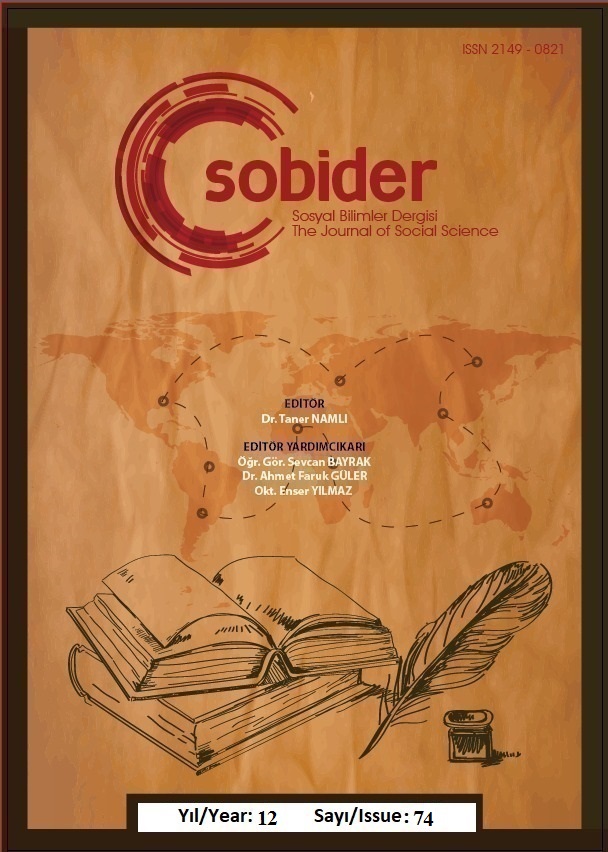Author :
Abstract
Kamu harcamalarını finanse etmek amacıyla devlet tarafından cebren ve karşılıksız olmak koşuluyla alınan parasal yükümlülükler ile küreselleşen dünyada bütün ülkelerin en önemli finansman kaynağı kolunu vergilerin oluşturduğu bilinmektedir. Günümüz vergi sistemlerinde, devlet vergi gelirlerini sadece kamu harcamalarını finanse etmek için değil, hem ekonomik hem siyasi hem de sosyal hayata müdahale aracı olarak kullanmaktadır. Bütün bunları yaparken de piyasa mekanizmasının işleyişini bozmadan, minimum maliyetle toplamış olduğu vergilerden maksimum düzeyde faydalanmayı amaçlamaktadır. 1929 yılında yaşanılan büyük kriz sonrasında, küresel anlamda devlet tarafından müdahaleci sisteme geçilmeye başlanmış ve vergi artık sadece kamu finansmanı kaynağı değil aynı zamanda ekonomik ve sosyal yaşama müdahale aracı görevi görmeye başlamıştır. Vergi, antik çağlardan günümüz modern çağa uzanan yolculuğunda savaşlar, doğal afetler, krizler gibi faktörler sonucu birçok kez evrim geçirmiş ve geçirmeye de devam etmektedir. Bundan dolayı vergiler, güncel ekonomik yaşamın her noktasında aktif bir biçimde rol almaktadır. Çalışmada ilk olarak verginin kökenine, hangi koşullarda ortaya çıkarak günümüzdeki modern şekline evrilmiş olduğuna ve verginin nasıl tanımlandığına kısaca değinilmiştir. İkinci olarak da OECD’nin kuruluşu ve amaçlarına, son olarak ise OECD’nin kendi içindeki vergi yapısı dikkate alınarak uygulamış olduğu vergi politikaları incelenmiştir.
Keywords
Abstract
It is known that taxes constitute the most important source of finance for all countries in the globalizing world, with monetary obligations taken by the state forcibly and without compensation in order to finance public expenditures. In today's tax systems, the state uses tax revenues not only to finance public expenditures, but also as a means of intervention in economic, political and social life. While doing all this, it aims to benefit from the taxes it collects at minimum cost without disrupting the functioning of the market mechanism. After the great crisis experienced in 1929, the state began to switch to an interventionist system in a global sense, and tax began to serve not only as a source of public finance but also as a means of intervention in economic and social life. Tax has evolved many times as a result of factors such as wars, natural disasters and crises on its journey from ancient times to the modern age, and continues to do so. Therefore, taxes play an active role in every aspect of current economic life. First, the origin of tax, the conditions under which it emerged and evolved into its modern form, and how tax is defined are briefly mentioned in the study. Secondly, the establishment and objectives of the OECD, and finally the tax policies implemented by the OECD, taking into account its internal tax structure, were examined.





